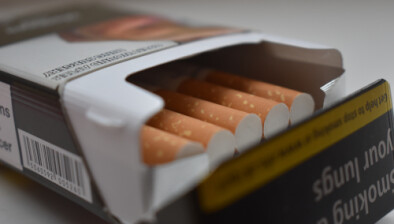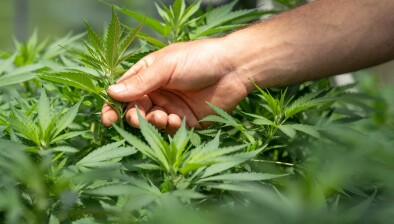High Court: Irish prohibition on importation and sale of CBD products containing traces of THC in accordance with EU law

The High Court has determined that the State’s prohibition on the importation and sale of CBD products containing trace amounts of THC is lawful in circumstances and does not offend the principle of the free movement of goods.

About this case:
- Citation:[2024] IEHC 463
- Judgment:
- Court:High Court
- Judge:Mr Justice Garrett Simons
Delivering judgment for the High Court, Mr Justice Garrett Simons stated that “a substance or preparation which contains even a low level of THC comes within the concept of a narcotic drug under the Single Convention on Narcotic Drugs, and, by logical extension, is not a ‘good’ which is entitled to benefit from the principle of the free movement of goods under Article 34 TFEU”.
Derek Shortall SC and Stephen T. Faulkner BL appeared for the applicant instructed by Mulholland Law, William Abrahamson SC and Frank Kennedy BL appeared for the first to fourth named respondents instructed by the Chief State Solicitor, and James Dwyer SC and Conor McKenna BL appeared for the fifth named respondent instructed by the Chief Prosecution Solicitor.
Background
In September 2021, gardaí, accompanied by officials from the Food Safety Authority of Ireland and the Health Products Regulatory Authority, searched the applicant’s home and business premises.
In the course of the search, products containing cannabidiol (CBD) were seized. Thereafter, the applicant was charged with various offences under the Misuse of Drugs Act 1977. The applicant conceded that certain of the products sold may contain traces of delta-9-tetrahydrocannabinol (THC), the psychoactive component of cannabis.
While her criminal prosecution was pending before the District Court, the applicant applied to bring judicial review proceedings seeking orders of certiorari quashing the search warrant pursuant to which the products were seized from her business premises.
The applicant pleaded inter alia that the prohibition on retailing products lawfully produced within the EU and containing less than 0.2 per cent THC constitutes a measure having equivalent effect to quantitative restrictions within the meaning of Article 34 of the Treaty on the Functioning of the European Union (TFEU).
The High Court
Mr Justice Simons initially explained that THC is a controlled drug for the purpose of the 1977 Act and the implementing regulations made therein as it comes within the definition of “cannabinol derivative”.
The judge set out that any substance or preparation containing THC is a controlled drug, irrespective of the proportion of THC present, and whilst there are exceptions under the Misuse of Drugs (Amendment) Regulations 2023 (S.I. No. 150 of 2023) for THC contamination in foodstuffs below certain levels and for medicinal cannabis products, those exceptions were not relevant to the proceedings before him as they came into effect subsequently.
The court considered that the question to be determined was whether Ireland was entitled, as a matter of EU law, to prohibit the importation and sale of products containing THC.
Mr Justice Simons outlined that the concept of a “narcotic drug” is not specifically defined in relation to the free movement of goods under the TFEU, and so the European Court of Justice (ECJ) has adopted definitions in instruments such as the United Nations Single Convention on Narcotic Drugs 1961.
The court focused on the ECJ’s approach in Kanavape, Case C-663/18, EU:C:2020:938 which concerned a derogation under French law for the cultivation, importation and use of the fibre and seeds of varieties of the plant Cannabis Sativa L where the THC content did not exceed 0.2 per cent.
The applicant relied upon Kanavape in respect of the ECJ’s purposive interpretation of “narcotic drug” which led it to conclude that since CBD did not contain a psychoactive ingredient, it would be contrary to the purpose and spirit of the Single Convention to include it under the definition of drugs, and so Articles 34 and 36 were applicable to the CBD in that case.
Mr Justice Simons found it potentially relevant that Kanavape concerned a legal issue rather than a factual issue, and the judgment recognised that the determination of whether a substance constituted a drug was a question of fact requiring consideration of whether, on the basis of current scientific knowledge, the substance was harmful to health, a matter which the ECJ determined was a matter for the referring court to decide.
The judge also found it relevant that subsequently, a 2019 recommendation made by the World Health Organisation to the effect that CBD should not be scheduled was rejected by the Commission on Narcotic Drugs in December 2020.
Turning to the applicant’s argument concerning the free movement of goods, the court noted that “the Applicant’s case is presented at a high level of abstraction. The Applicant contends that the ECJ, in its judgment in Kanavape, has determined that a CBD based product which contains less than 0.2 per cent THC is subject to the free movement of goods. With respect, this contention is not well founded.”
Mr Justice Simons highlighted that the existence of the 0.2 per cent threshold did not feature in the ratio decidendi of the judgment, stating that “the ECJ left it to the French court to decide whether, as a matter of fact, the substance at issue in that case would be harmful to human health having regard to the current state of scientific knowledge. Certainly, the ECJ did not purport to make a finding of fact, of general application, that a substance which contains less than 0.2 per cent THC does not present an unacceptable risk to human health.”
The judge warned that “even if Kanavape were authority for the asserted proposition, this would not necessarily avail the Applicant. This is because the 0.2 per cent threshold mentioned by the referring court had been applicable solely to the plant variety from which the cannabis has been extracted: it is not a threshold for the finished product.”
Finding that an argument in almost identical terms had been previously rejected by Mr Justice Alex Owens in Bogusas v. Minister for Health [2022] IEHC 621, Mr Justice Simons refused to depart from that judgment on the basis of the test in Re Worldport Ireland Ltd [2005] IEHC 189.
The court considered that there was no necessity for the Article 267 TFEU reference sought on behalf of the applicant in circumstances where, inter alia, Kanavape did not have the effect which the applicant attributed to it.
Mr Justice Simons also rejected the applicant’s argument that the designation of cannabinol derivatives, including THC, as controlled drugs for the purpose of the 1977 Act interfered with her right to earn a livelihood pursuant to the Constitution and the European Convention on Human Rights (ECHR).
The judge found that the appellant’s constitutional argument was fatally flawed as it was expressly predicated on the mistaken assumption that the statutory restrictions on the import and sale of products containing THC are not in compliance with EU law, remarking that there was a respectable argument that even if the applicant had established a prima facie infringement of her constitutional rights, this would be shielded by Article 29.4.6° of the Constitution.
The court also determined that the judgment relied upon by the applicant in respect of her ECHR rights had no resonance with the circumstances of her case.
Conclusion
Accordingly, the High Court dismissed the application for judicial review.
Lynch v Minister for Health & Ors [2024] IEHC 463








